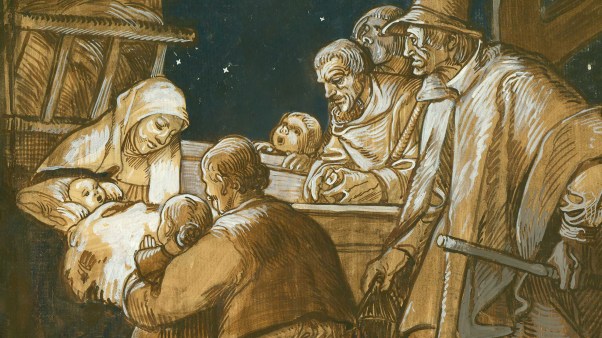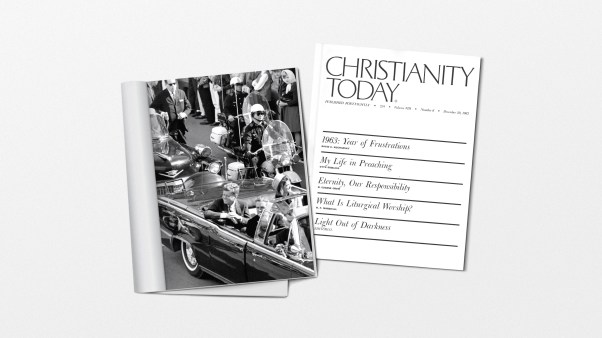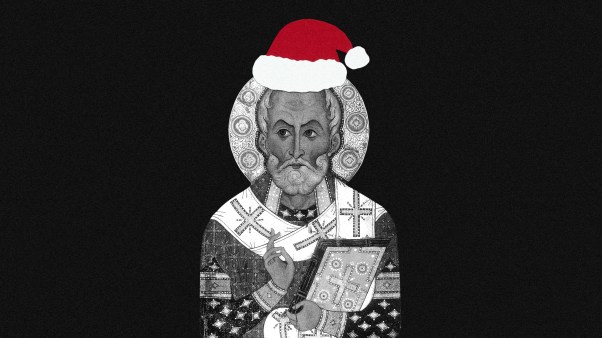When I began my studies at Wesley Theological Seminary, several upperclassmen warned me about taking courses offered by George Wesley Buchanan, a no-nonsense professor who demanded excellence from his students and graded them accordingly. One faculty member derisively charged Buchanan with interpreting Scripture according to Judaism rather than Christianity. Since I was young, impressionable, and desired to succeed in my first year of studies, I avoided Dr. B. like the plague.
Forty-five years later, I stumbled upon George Buchanan’s autobiography, which recounts his difficult years at Wesley and how his colleagues often misunderstood his research and, at times, maligned him. His book is titled An Academic Hound Dog Off the Leash, and Buchanan—now in his 90s—wanted to set the record straight before heading off to glory.
His memoir captured my imagination, and I eventually came to respect the man I once shunned. I discovered Buchanan earned a reputation in wider academic circles as a first-rate scholar, especially among elected members of the Studiorum Novi Testamenti Societas, a prestigious biblical society whose past presidents included venerated figures like C. H. Dodd, Rudolf Bultmann, Joachim Jeremias, C. K. Barrett, Oscar Cullmann, and John Barclay.
Using metaphorical language, Buchanan likened his fellow faculty members to “collie dogs” who spent their time keeping the sheep within the fold and rounding them up whenever they strayed. Their main job was to protect the theological borders of their institutional pasture. By comparison, Buchanan identified himself as a “hound dog” who followed the scent of biblical truth wherever its trail might lead.
After reading Buchanan’s story, I realized at the time that I was a border collie. As a pastor, professor, apologist, and cult-buster, I drew thick lines around conventional interpretations of biblical theology and warned people of the dangers lurking beyond those acceptable boundaries. The problem is that, in Protestantism especially, there are more borders than there are even denominations—and each border acts as an enclosure to enfold its sheep, and requires collies to protect it.
On one occasion, the conservative Christian college where I taught invited Richard Bauckham, a prominent British biblical scholar, to give a lecture for the student body. During the Q&A session, a colleague of mine asked him a question about his views on eschatology, and Bauckham’s response did not fully align with the institution’s position. Afterward, there was an unspoken expectation of us professors to address this issue when the students returned to class. This is what border collies do!
In 2005, I was granted a sabbatical and began working on a second PhD. My first doctorate was from a school that majored in training border collies, so to speak, but the University of Wales (UK) was different. Bill Campbell, my supervisor, had the patience of a saint. Having worked with other American evangelical students, he suggested I expand my academic horizons, read outside my comfort zone, and enter conversations with other scholars in my field.
With anxiety and trepidation, I took the first steps beyond my comfortable ecclesiastical borders to discover a vast new world. It was frightening, exciting, and enlightening. I began reading Second Temple literature and ancient primary sources dealing with the Roman world. Before long, I met gracious academics who took interest in my studies and offered me constructive criticism. And by the time I completed my PhD thesis, I was a full-fledged hound dog!
I was eager to bring my newfound knowledge into the classroom and teach my students how to similarly think outside the box. And yet, like George Wesley Buchanan, I soon found this raised eyebrows among some of my colleagues.
For instance, there was concern when I taught that Jesus spoke in Aramaic and that the gospel authors translated Jesus’ sayings into Greek. Some thought I was arguing that there was a “text behind the Greek text,” although I assured them that this was not the case. I explained that there are some Aramaic sayings which the gospel writers had to translate and spell out for audiences who did not know Aramaic. Yet the academic dean of the school still called me into his office to question me, and I had to reassure him that I held true to the historical creeds of the church. All this controversy began because I was simply trying to use all resources at my disposal to help students interpret the Scriptures more correctly.
As a biblical theologian, I am trained to study each book of the Bible on its own—to examine it in its unique literary, historical, and social contexts. Bible scholars do not try to harmonize the Gospels, for example, because we know that each book is unique. Their authors wrote at different times to different audiences located in different parts of the empire, lived under different leaders, and experienced different levels of persecution. The authors wrote for distinct reasons and had distinct goals in mind, selecting only the stories about Jesus and his teachings that were helpful and pertinent to their respective audiences.
Biblical theologians also utilize supplementary materials such as ancient Roman and Jewish literature, epigrams, and cultural practices. And contrary to what some might think, this “outside” information is not considered a source of “extra-biblical revelation,” but it helps us to interpret the Scriptures with greater accuracy. The more familiar we are with ancient customs, the better our understanding of the biblical text.
For example, in my book Subversive Meals, I explain that Roman banquets in the first century included the meal proper as well as symposium activities (after-meal entertainment, discussion, music, speeches, etc.), which were linked by a drink offering (pouring a cup of wine out to the emperor and the gods as a sign of loyalty to the empire). The Lord’s Supper followed the same pattern—meal and symposium—but believers raised a cup in honor of Christ and his kingdom. Hence, back then, the Christian Communion meal was seen as an anti-imperial act of subversion.
Knowing this helps us better understand the historical context of the Christian meal and the cost some first-century believers paid to participate. Each bit of new data helps us to get closer to a text’s original meaning in its first-century setting—and since getting the text right is the name of the game, we must use every tool at our disposal.
Occasionally, a single new historical insight can lead us to rethink long-held interpretations of certain biblical concepts and passages, which can ultimately shift our established theological understanding of a given doctrine.
We saw this process in action when E. P. Sanders, after studying the Dead Sea Scrolls, discovered that most first-century Jews did not, in fact, believe in a works-based salvation, as many scholars had previously thought. Rather, most Jews understood salvation to be the result of divine election—that God chose them and established a covenant with them, and keeping the Law was merely seen as evidence that they were God’s covenant people.
This groundbreaking biblical insight changed the way many interpreted Paul’s relation to Judaism—as well as his letter to Galatians and his theological arguments on the doctrine of salvation. Scholars like N. T. Wright, James D. G. Dunn, and Scot McKnight, among others, gravitated toward this new perspective, which led to a controversy over the nature of justification that continues even now. As a result of this discovery, some systematic theologians and others are raising issues about abandoning traditional reformation theology altogether.
That is not to say traditional understandings of certain doctrines should be set aside on a whim. But neither should we hesitate, based on solid research, to seek further light on any given subject. After all, it was the re-examining of Scripture—in comparison with established Catholic creeds—that ultimately led to the Protestant Reformation and its widespread distribution of the Bible to the common believer.
Some systematic theologians focus on church councils and the historical development of creeds, many of which were formulated in response to specific heresies (such as Docetism and adoptionism) and have been upheld and defended for centuries. And while biblical scholars can repeat and affirm the Nicene and Apostles’ Creeds without reservation—standing in unity with the church universal—our task is different from systematic theologians.
The main question we are concerned with is, What did the text mean to the original audience? We focus on the first-century text and seek to acquire more historical and cultural insights. Otherwise, the entire field of biblical studies would remain static, and no fresh readings or analyses would emerge. In other words, our primary job as biblical scholars is to interpret the text rightly; and we are often happy to leave the doctrinal implications in the hands of systematic theologians.
That said, even the best hound dogs can occasionally find themselves barking up a wrong tree. But we must not allow that possibility to hinder us from our overall task. So, I urge my fellow hound dogs to keep their noses to the ground and follow the trail of biblical truth. Amazing and exciting discoveries—leading to a better understanding of Scripture—are just beyond the horizon.
R. Alan Streett is the senior professor emeritus of biblical theology at Criswell College in Dallas.














